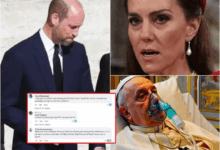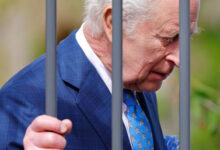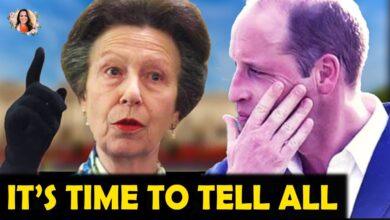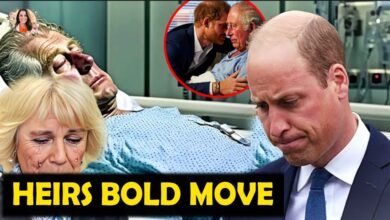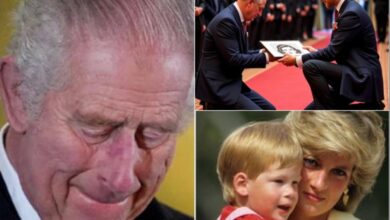Here’s What Will Happen To Queen Camilla If King Charles Dies First
Queen Camilla has outlined plans for what she would do if King Charles were to pass away due to a serious illness: ‘He probably doesn’t have much time left. If that happens, I will take over all the power on behalf of King Charles and expel those who oppose me from Buckingham, for example, …’”
What happens when the King of the United Kingdom passes away, leaving behind a Queen? For centuries, the British monarchy has followed a meticulously crafted protocol, ensuring every detail of such transitions is planned. But in Queen Camilla’s case, her story is unique. Her role as Queen Consort has been a subject of public interest, and the question arises: What would happen to her title, duties, and place within the royal family if King Charles III dies first?
To answer this, we must first understand who Queen Camilla is, how she came to hold her current title, and what her role within the monarchy entails. From her early years as the Duchess of Cornwall to her ascension as Queen Consort, Camilla’s journey is intertwined with public scrutiny, royal duty, and tradition. Let’s get into intriguing details.
Camilla Rosemary Shand, born into an aristocratic family in 1947, was a prominent figure in British high society long before she became Queen Consort. She married Andrew Parker Bowles in 1973, with whom she had two children. However, her long standing relationship with Prince Charles, now King Charles III, remained a defining aspect of her life. Their relationship, initially overshadowed by controversy, eventually led to their marriage in 2005, marking a turning point in Camilla’s public image.
In an unexpected and candid statement, Queen Camilla has outlined a series of plans regarding what she would do if King Charles were to pass away due to a serious illness. As the world watches closely, the Queen’s comments have sparked both intrigue and concern, offering a glimpse into the future of the British monarchy and the power dynamics that may unfold in the absence of King Charles.
Queen Camilla’s declaration, made in a private gathering, reportedly read, “He probably doesn’t have much time left. If that happens, I will take over all the power on behalf of King Charles and expel those who oppose me from Buckingham, for example, …” These remarks have raised eyebrows, given the unprecedented nature of her approach to handling the monarchy’s power structure. The 76-year-old Queen, who was previously known primarily for her support of King Charles and her advocacy on various charitable causes, now appears to be ready to step into the role of monarch with a level of decisiveness and authority that has rarely been associated with royal women in British history.
The Monarchy’s Changing Landscape
For centuries, the British monarchy has been governed by a rigid hierarchy, with the role of the monarch passed down through the male line until the recent changes that allow for gender-neutral succession. Queen Camilla’s comments suggest that, despite her secondary status as consort to King Charles, she fully anticipates assuming the crown in the event of his death. This is not entirely surprising—after all, as Queen Consort, she is the wife of the reigning monarch and, in theory, would be the natural successor to the throne if King Charles were to pass away.
However, her statement that she would “take over all the power” and expel those who oppose her from Buckingham Palace indicates a far more assertive and forceful approach than might have been expected from someone in her position. This plan stands in contrast to the traditional expectations that the Queen Consort, even in times of a monarch’s passing, would take a more ceremonial or advisory role, deferring to the royal family and the British government as a whole in matters of governance.
Power Struggles and the Royal Court
One of the most striking aspects of Queen Camilla’s statement is her reference to expelling those who oppose her from Buckingham Palace. Buckingham Palace has long been seen as the epicenter of royal influence, and the idea that she would take immediate action to assert her power by purging potential rivals hints at underlying tensions within the royal family. Over the years, various reports have suggested rivalries between Camilla and some members of the royal family, particularly with Prince William and Prince Harry, although these claims have largely been denied or downplayed by official sources.


